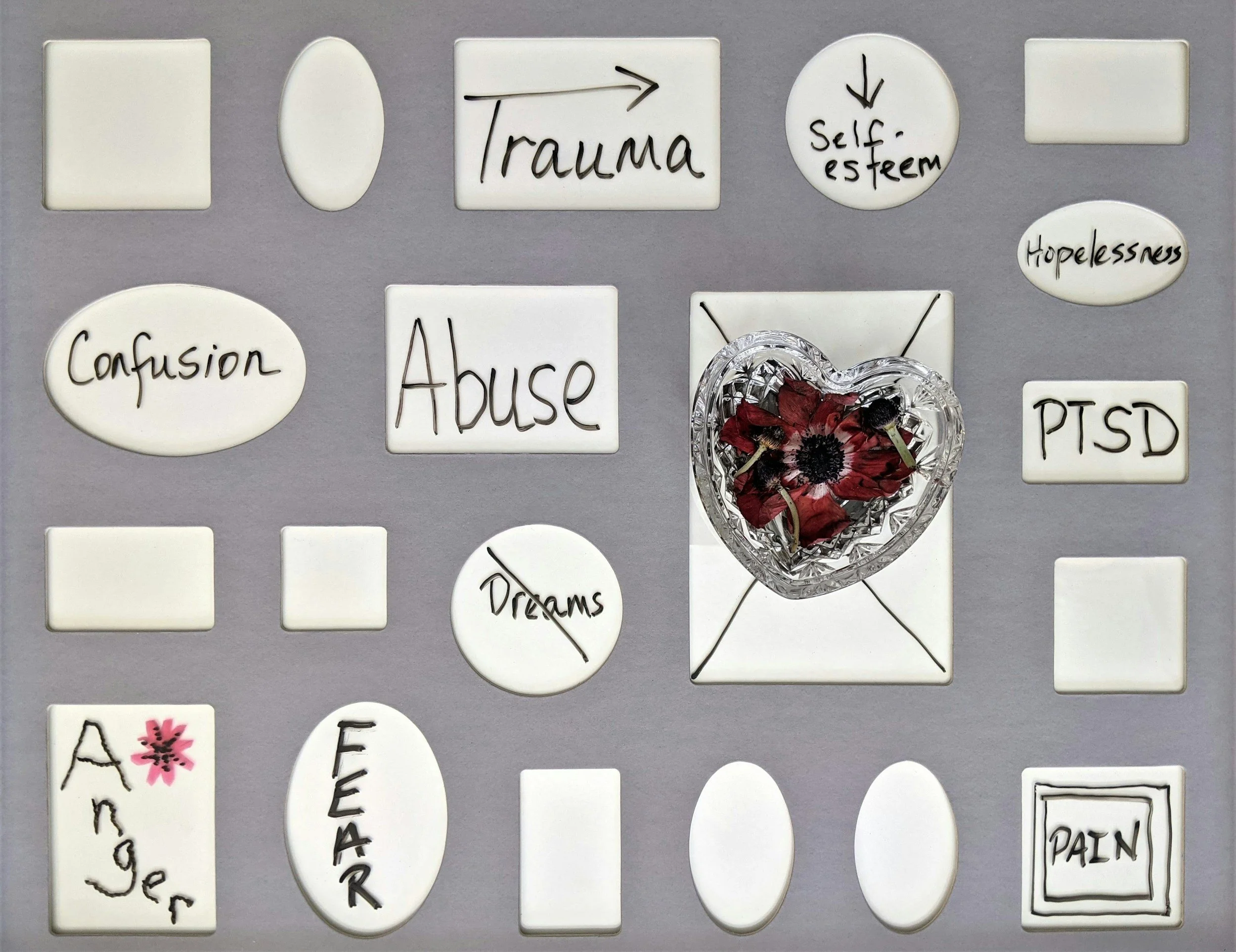The Impact of Addiction on Families: Complex Trauma Symptoms
How Living with Addiction Creates Complex Trauma
Addiction is often described as a family disease. It doesn’t just affect the person drinking or using substances, it weaves itself into the entire family system, shaping how people think, feel, and relate to one another. Over time, these patterns can create what clinicians call complex trauma: ongoing emotional wounds that develop from prolonged exposure to unpredictable, unsafe, or chaotic environments.
For many families, living with addiction feels like living on shifting ground. The house may look normal from the outside, but inside, daily life is ruled by secrecy, fear, and instability. Children grow up learning survival skills rather than healthy emotional development, and partners find themselves trapped between love, loyalty, and betrayal.
What is Complex Trauma?
Unlike single-incident trauma (such as a car accident), complex trauma develops over time, through chronic stress, neglect, abuse, or exposure to instability. When addiction is present, family members often experience:
Unpredictability: Never knowing whether a loved one will come home sober, intoxicated, angry, or absent.
Emotional neglect: Needs for safety, affection, and reliability are pushed aside in the chaos of addiction.
Repeated betrayal of trust: Promises to “change” or “never drink again” are broken, often repeatedly.
Shame and secrecy: Families hide the truth from neighbors, extended relatives, and even themselves.
These conditions erode emotional safety and leave lasting imprints on children and adults alike.
Common Complex Trauma Symptoms in Families Affected by Addiction
Hypervigilance: Always being “on edge,” scanning for danger, or anticipating conflict.
Difficulty trusting others: Family members may struggle with intimacy or constantly fear abandonment.
Emotional numbing: Shutting down feelings as a survival strategy, leading to disconnection from joy as well as pain.
Dysregulated emotions: Swinging between anger, sadness, fear, or anxiety with little stability.
People-pleasing or perfectionism: Attempting to earn safety or love by meeting unrealistic standards.
Re-enactment patterns: Choosing partners or relationships later in life that mirror the chaos of the past.
For children, these symptoms often carry into adulthood, influencing relationships, self-worth, and even career choices. For spouses and partners, trauma can manifest in depression, anxiety, chronic health issues, or codependency.
Growing Up with Addiction
Take Sarah, who grew up with a father struggling with alcoholism. Some nights he was affectionate and playful; other nights he was volatile, unpredictable, or absent altogether. Sarah learned not to cry or complain, believing it would only “make things worse.” As an adult, Sarah struggles with trust in relationships, often waiting for the other shoe to drop. She is highly responsible and successful at work but finds herself burned out, anxious, and unable to relax.
Sarah’s story is not unique. Many adult children of addiction live with the invisible scars of complex trauma, long after the substances are gone.
How Families Can Begin Healing
Healing complex trauma in families affected by addiction requires more than just addressing the person struggling with substances. It requires attention to the whole system.
Therapy and Support Groups: Modalities such as family therapy, trauma-informed therapy, or groups like Al-Anon provide education and healing.
Psychoeducation: Understanding how trauma manifests helps families reduce shame and recognize that these struggles are survival responses, not character flaws.
Boundaries: Learning to set healthy, compassionate boundaries restores safety and predictability.
Aftercare and Family Programs: Structured aftercare programs often provide family education and support alongside the addicted person’s recovery.
Generational Healing: By addressing the impact of addiction openly, families break cycles and prevent trauma from being passed down.
Why This Matters
Families who’ve lived with addiction are often left asking: Why do I still feel so broken, even when my loved one is sober? The answer often lies in trauma. Recovery isn’t just about abstinence from substances, it’s about healing the wounds left behind.
By recognizing complex trauma, families gain a roadmap for recovery that includes everyone, not just the addicted person. In doing so, families move from secrecy to truth, from survival to resilience, and from fractured bonds to authentic connection.
Moving Forward
Living with addiction leaves marks that extend far beyond the substances themselves. Families often carry the weight of complex trauma that impacts trust, relationships, and emotional well-being for years. Yet healing is possible. With awareness, supportive guidance, and trauma-informed care, families can begin to break free from old survival patterns and move toward recovery together.
At Interventions With Love, we understand the profound impact addiction has on the entire family system. With compassion, structure, and clear guidance, we walk alongside families as they rebuild connection and strength. Whether you’re seeking family coaching, an intervention, or a way forward after years of pain, we are here to help. Contact us today to begin the process of healing and to build a stronger, healthier future for your family.
